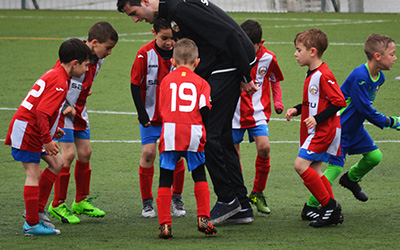Soccer is a popular sport worldwide, enjoyed by millions of children and adults alike. Apart from the entertainment value, soccer plays a significant role in the physical and mental development of children. It offers various physical, mental, and social benefits that can help children become healthy and well-rounded individuals. In this article, we will discuss the critical role that soccer plays in the physical and mental development of children.
Physical Benefits of Soccer for Children
Soccer is an excellent way for children to stay active and maintain a healthy lifestyle. The sport involves running, jumping, and other physical movements that promote cardiovascular health and help build strength and endurance. Children who play soccer can develop better body awareness, coordination, and balance, which can help them stay healthy and avoid injuries. In addition to these physical benefits, soccer can also promote:
- Aerobic Fitness: Soccer involves continuous running, which can improve children’s aerobic fitness and overall cardiovascular health.
- Increased Muscular Strength: Soccer players use their leg muscles a lot, which can help improve muscular strength and endurance.
- Improved Balance and Coordination: Soccer requires players to use their feet to control the ball, which can help improve their balance and coordination. They must also learn to dribble, pass, and shoot the ball, which can help them develop better fine motor skills.
- Better Flexibility: Soccer also involves stretching and other movements that can improve children’s flexibility and range of motion.
Mental Benefits of Soccer for Children
In addition to the physical benefits, soccer can also have a positive impact on children’s mental health and well-being. Playing soccer can help children develop important mental skills that can benefit them both on and off the field. Some of these benefits include:
- Improved Confidence: Soccer can help children build confidence by providing opportunities to succeed and overcome challenges. This can boost their self-esteem, helping them feel more confident in other areas of their lives.
- Goal-Setting: Soccer requires focus and discipline to succeed. Children who play soccer can learn how to set and achieve goals, helping them develop important life skills that can benefit them in all areas of their lives.
- Teamwork: Soccer is a team sport, and playing it requires communication, collaboration, and cooperation. Children who participate in soccer can develop social skills like leadership, empathy, and teamwork, which can benefit them in all areas of life.
- Enhanced Problem-Solving Skills: Soccer requires players to think on their feet and make quick decisions, which can help improve children’s problem-solving skills.
- Mental Strength: Soccer can be a physically and mentally demanding sport, requiring children to stay focused and motivated even when things get tough. By learning how to push through challenges and setbacks, children can develop mental toughness that can help them succeed in other areas of their lives.
Soccer plays a crucial role in the physical and mental development of children. It offers numerous physical benefits, including improved cardiovascular fitness, increased muscular strength, better balance and coordination, and enhanced flexibility. It also provides several mental and emotional benefits, including improved confidence, focus, discipline, problem-solving skills, leadership, and social skills. As such, soccer is an excellent sport for children to participate in, whether for fun or as part of a competitive team. By playing soccer, children can develop into healthy, well-rounded individuals who are prepared for success both on and off the field.







